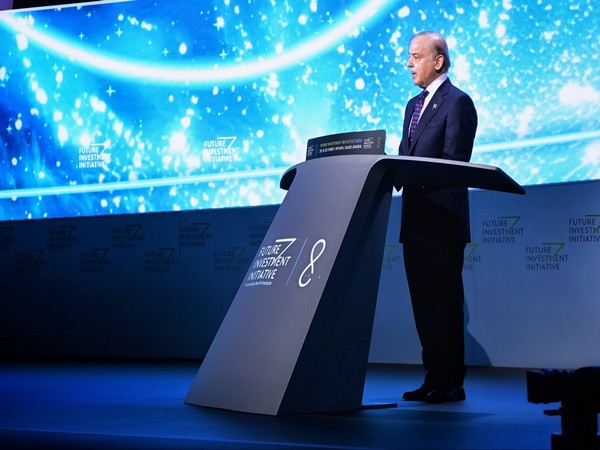Pakistan Seeks Financial Lifeline from Saudi Arabia and China to Bridge USD 5 Billion Gap
Pakistan is turning to China and Saudi Arabia to address a USD 5 billion external financing gap. With aims to secure debt rescheduling and deferred oil payments, the country hopes to fulfill IMF bailout conditions. Speculations are high as Pakistan navigates complex financial negotiations with its global partners.

- Country:
- Pakistan
Pakistan is banking on financial assurances from Saudi Arabia and China to address a USD 5 billion external financing shortfall, as reported by the Express Tribune. The country is working towards a debt rescheduling deal with China and deferred oil payments from Saudi Arabia amidst initial delays. This initiative is part of Pakistan's broader strategy to meet external funding requirements under a USD 7 billion bailout package from the International Monetary Fund (IMF).
The Pakistani government has informed the IMF that it expects support from China's Exim Bank, which has agreed to roll over USD 3.4 billion in project debt, and from Saudi Arabia, which has offered a USD 1.2 billion oil facility, according to the Express Tribune. These assurances were given by Saudi and Chinese executives when the IMF board signed off on the bailout package. Pakistan has requested the IMF to reconsider its demand for significant amendments to the Pakistan Sovereign Wealth Fund (PSWF) law by year's end. While awaiting the IMF's response, the government has enlisted Alvarez & Marsal Sovereign Advisory Services, headed by ex-central bank governor Dr. Reza Baqir, to support its stance.
In a briefing to the IMF, Pakistan reaffirmed its commitment to securing essential external financing, which will bridge the USD 5 billion gap from 2024 to 2027, the Express Tribune reported. About USD 2.5 billion is required for the current fiscal year. Pakistan initially sought to raise USD 3.2 billion, including the USD 1.2 billion Saudi oil facility; however, each month of delay in finalizing this arrangement decreases available funds by USD 100 million within the fiscal year.
On the Chinese front, Pakistan aims to reschedule approximately USD 3.4 billion in debt, with USD 750 million due next year. A substantial portion of this debt, about USD 2.7 billion, will mature between October 2025 and September 2027, as reported by the Express Tribune. Finance Minister Muhammad Aurangzeb, currently attending COP 29, is set to join the IMF talks on Friday. During these discussions, Pakistani representatives and Alvarez & Marsal emphasized the need for amendments to the PSWF Act. The government committed to revising the legislation by December but suggested that the IMF should not insist on drastic changes. Specifically, Pakistan believes that the sovereign wealth fund should not be regarded as a state-owned enterprise, contrary to the IMF's initial perspective.
In response to IMF's concerns, Pakistan agreed to several changes to the PSWF Act, including omitting Section 50, which permitted the sale of state-owned entities to foreign buyers. The law requires amendments in areas like governance, revenue management, public asset management, and SOE handling, as reported by the Express Tribune. The government intends to align the fund with international standards, including banning direct asset sales to foreign countries. Pakistan is also committed to eliminating special privileges that allow the fund to acquire or privatize state-owned enterprises. If the IMF's proposed changes are accepted by parliament, such privileges will be revoked.
(With inputs from agencies.)
ALSO READ
Pakistan's Unscheduled IMF Bailout Reform Talks
Sri Lanka's IMF Bailout: A New Parliamentary Era
IMF Approves Third Review of Sri Lanka's Bailout Amid Economic Vulnerability
IMF Sanctions Third Review of Sri Lanka's Bailout Amidst Economic Vulnerability
Sri Lanka's IMF Bailout: A New Era of Economic Reform










